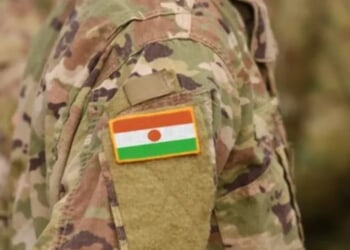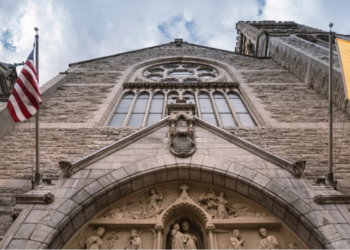The Sudanese people are currently enduring one of the most horrific catastrophes in the country’s history, following the start of its 2023 civil war. Fighting between the Sudanese Armed Forces (SAF) and the Rapid Support Forces (RSF) has unleashed a hellish vortex of starvation, violence, and disease upon tens of millions in Sudan.
The United Nations recently classified the situation in Sudan as the worst humanitarian crisis in the world, but the international spotlight has rarely been focused on the issue due to the wars in Gaza and Ukraine.
25 million people, half of Sudan’s population, are currently experiencing famine conditions and acute food insecurity. Food conditions for 8.1 million people are classified as Emergency (IPC Phase 4), and almost 700,000 as Catastrophe (IPC Phase 5). Hunger levels for the same 25 million people are also considered at and above “Crisis” classification.
Famine and starvation are also used as military tactics by the SAF and the RSF, as blockades are built and crops are burned. In many areas, particularly Darfur, aid delivery is obstructed, pushing populations into full-scale collapse due to a lack of access to food.
Additionally, 12 million people have been internally displaced in the country, forced out of their homes and into refugee camps. These camps provide no real measure of security, however, as in April, the RSF murdered 300 people in two days at one such camp in Darfur.
For children, the suffering is particularly acute, as more than 15 million now need humanitarian assistance. Additional reports of killings, abductions, and sexual violence have spiked by 1,000 percent in recent months.
This level of brutality shows that the Sudanese people are not just casualties of war; they are also primary targets. Although the warring factions have committed hundreds of war crimes, the international community has not addressed the issue in any significant way.
This fact, coupled with limited media reporting on the issue, creates a bubble of silence around the people of Sudan, one that needs to be broken. While there are serious, ongoing crises in the wars between Israel and Hamas, as well as Ukraine and Russia, this does not warrant the global community’s near silence on Sudan’s plight.
Perhaps the Left, which endlessly preens about supposed American racism, ought to turn its outrage toward the visceral persecution of millions in Africa. And conservatives, for our part, should challenge the strain of isolationism in our ranks that dismisses any foreign engagement unless it delivers an immediate boost to our GDP.
This is not a call for troops on the ground in order to “liberate” or “bring Democracy” to Sudan. It is a call, however, for increased support for organizations and charities that are seeking to quell this horror.
One such organization is Persecution Project Foundation, a Christian humanitarian group that has performed vital work in Sudan for decades. Their work involves providing medical supplies, medicine, safe water, shelter tarps, relief supplies, and trauma healing to the impoverished Sudanese. The American Spectator interviewed Brad Philips, who founded the organization in 1997.
Mr. Philips highlighted ways in which the United States’ funding has exacerbated the political and social collapse of Sudan. “For decades, we have sent hundreds of billions of U.S. taxpayer dollars in foreign assistance into the coffers of criminal regimes responsible for manufacturing the crisis.” He also stated that, “American strategic interests in Africa need not conflict with our core values.”
When asked about those interests, Mr. Philips stated, “Stop funding our enemies. Turn off the money. It is my belief that 90 percent of the money the U.S. government was spending in Sudan for the last four decades was funding the troublemakers.”
He also noted that, “Sudan has been in the grip of the Islamist movement for decades, and they have been the biggest factory of political islam in Africa,” and that, “We should no longer attempt to rescue and resuscitate Sudan’s Islamist establishment [that is] responsible for decades of genocide, terror, and persecution.”
Ed Lyons, director of ministry advancement at the Persecution Project, also discussed the Sudanese crisis with The American Spectator. He highlighted how aid groups are the only barrier between life and death for Sudanese people. Mr. Lyons stated of the SAF and RSF, the two warring military forces, “neither of these two groups really care about the people so much as they do control.”
Mr. Lyons stated that part of the reason Sudan’s crises fly under the radar is that nearly all of the country’s history has been tumultuous. “Most of [Sudan’s] existence has been in warfare… maybe people are looking at [Sudan] like there’s nothing new under the sun.”
The crises in Sudan are not abstract statistics; they are measured in skipped meals, improvised shelters, and miles walked to reach clean water. Millions suffer silently as foreign attention remains on Putin or Netanyahu, but Sudan still deserves our attention. A country so deeply broken will not be helped by a regime change or funneling money to evil militant factions, but by determined organizations trying to bridge the gap between what international agencies can provide and what communities actually need.
READ MORE from Andrew Gondy:
Newsom Slams Redistricting As Threat to Democracy, Vows to Redistrict California





![Gavin Newsom Threatens to 'Punch These Sons of B*thces in the Mouth' [WATCH]](https://www.right2024.com/wp-content/uploads/2025/08/Gavin-Newsom-Threatens-to-Punch-These-Sons-of-Bthces-in-350x250.jpg)
![ICE Arrests Illegal Alien Influencer During Her Livestream in Los Angeles: ‘You Bet We Did’ [WATCH]](https://www.right2024.com/wp-content/uploads/2025/08/ICE-Arrests-Illegal-Alien-Influencer-During-Her-Livestream-in-Los-350x250.jpg)







